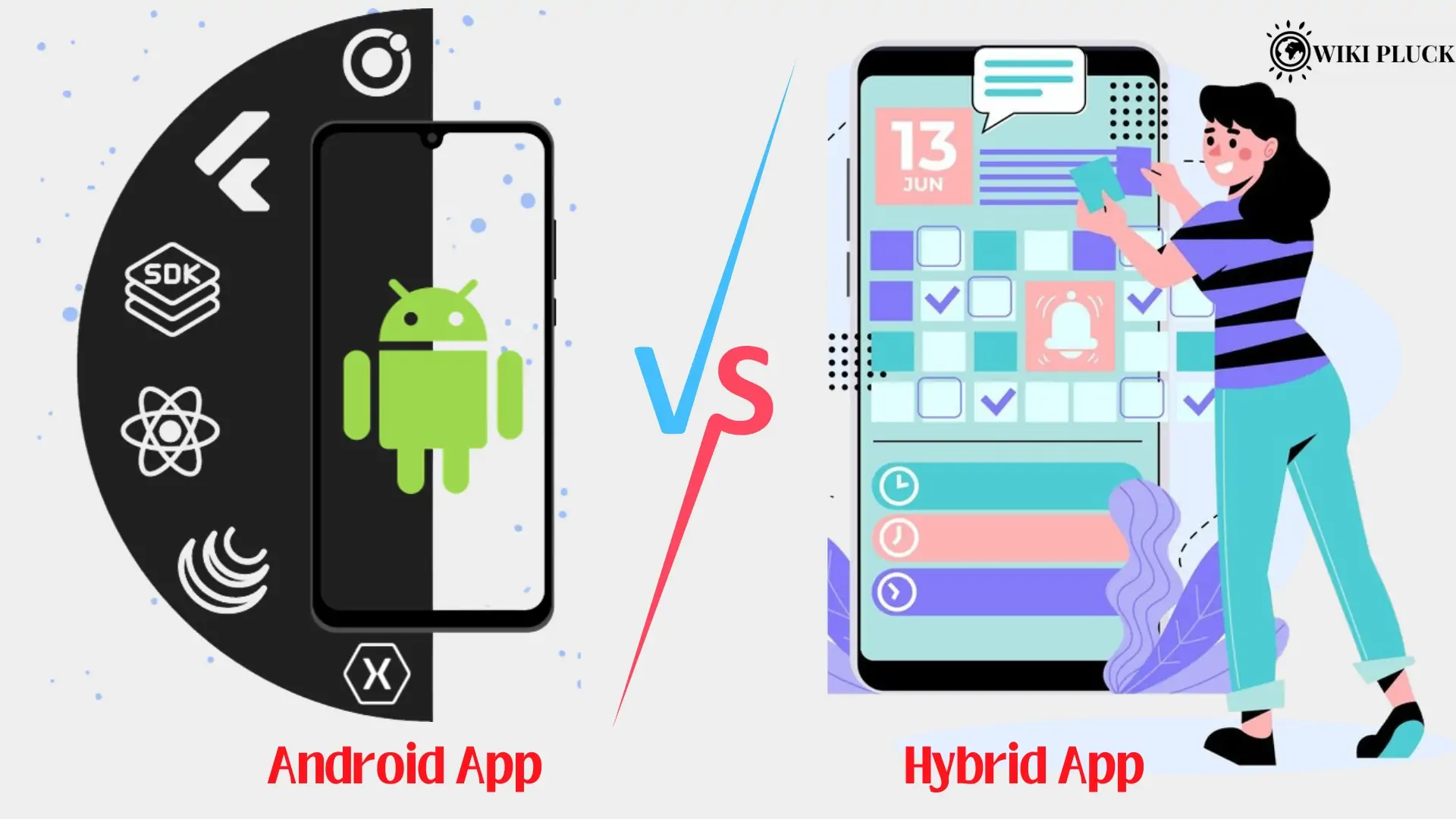Nowadays, mobile applications are an integral part of our lives in the current era of digital technologies. Firms strive to discover unique and compressed channels of communication with the audience. Native Android apps and hybrid apps are widely used as the two foremost app development options.
Identifying the differences between these two ways of learning would have a significant impact on your path. To help you pick the right one among them, below are the top 15 differences that exist between developing a native hybrid and an Android app.
With these differences, businesses can also partner with a suitable Android app development company or a Hybrid one.
Key Distinctions Between Android and Hybrid App Development
Platform Specificity:
Android App Development: Languages like Java or Kotlin are used to create Android apps built specifically for the Android platform.
Hybrid App Development: These applications are developed using technologies like HTML, CSS, and JavaScript and can operate on multiple platforms, including Android.
Execution:
Android App Development: Since native apps have been designed for the Android platform, they usually run better.
Hybrid App Development: Given that hybrid apps rely on web technologies and a wrapper for native functionality, they can experience only a slight performance difference.
Also Read: Growing Your User Base: A Guide to Android App Development
User Experience:
Android App Development: Native app development for Android platforms requires alignment with the platform’s design standards, which translates into fewer app crashes and troublesome functionalities.
Hybrid App Development : The difficulty hybrid apps face in precisely replicating native apps’ user experience, especially when animations and navigation are considered, can be daunting.
Duration of Development :
Android App Development: Android apps developed for the native Android OS have to be separately tested and coded. It takes more time than universal app development.
Hybrid App Development: Code reusability allows rapid hybrid app development, thus saving developers valuable time spent testing and writing the code.
Costs:
Android App Development: Based on their platform specific knowledge, hiring an Android app development agency for native development may be more expensive.
Hybrid App Development: As hybrid applications necessitate a single codebase, they can be built at a lesser cost, which is of great value for companies that are seeking to reach several platforms.
Obtaining Native Features:
Android App Development: Native applications provide more functionality as they have complete access to device specific features and APIs.
Hybrid App Development: In order to access native capabilities, hybrid apps rely on wrappers or plugins, which may restrict the functionality or performance of some features.
Offline Functionality:
Android App Development: By utilizing local storage and caching methods, native Android apps can award strong offline capabilities.
Hybrid App Development:: In order to provide a flawless offline experience, hybrid applications may need extra setups or plugins. However, they can enable offline mode.
Also Read: Which one is best for you Wireframing VS Prototyping?
App Store Authentication Procedure:
Android App Development: If you want to send your native Android apps to the Google Play Store, you should follow the regulations and rules designed by Google.
Hybrid App Development:: Although hybrid applications could face fewer platformspecific restrictions throughout the approval process, they still need to follow app store criteria.
Updates and Maintenance:
Android App Development: Depending on the complexity of the software, different efforts may be needed for maintaining and upgrading native Android apps for each platform version.
Hybrid App Development:: Since modifications can be made to an app once and applied to multiple platforms at once from a single codebase, hybrid applications make updates and maintenance simpler.
Enhancing Performance:
Android App Development: Along with native Android apps, the developers get an opportunity to manage performance optimization, through which they can streamline further making and integrating the applications to suit the device specifications.
Hybrid App Development:: Since the programming code of a hybrid app is separated from the computing hardware of the device, it may be harder to achieve optimum performance in hybrid apps.
UI/UX Customization:
Android App Development: Native applications provide extensive UI modification in accordance with Material Design guidelines for Android.
Hybrid App Development:: Customizing the UI/UX of hybrid apps may be difficult, particularly when it comes to smoothly emulating platform specific design aspects.
Security:
Android App Development: To improve data safety, native Android apps can include platform specific privacy safeguards and encryption techniques.
Hybrid App Development:: To guarantee data security across platforms, hybrid apps may need to take extra precautions in addition to relying on internet safety standards.
Integration with Device Hardware:
Android App Development: Native apps may be easily integrated for a variety of functions using hardware features on the device, such as cameras, sensors, and NFC capabilities.
Hybrid App Development: To fully integrate with device hardware, hybrid apps could need plugins or unique implementations, which could have an effect on performance.
Also Read: The Ultimate Guide to Developing the Perfect Mobile App
Scalability:
Android App Development: By utilizing platform specific optimizations, native apps may be scaled effectively for bigger user bases or complicated functions.
Hybrid App Development:: Although hybrid applications are scalable, they can experience compatibility problems or performance constraints when used in large quantities, necessitating careful design and optimization.
Target Audience and Use Cases:
Android App Development: Android app development services are just perfect for businesses looking to target a specific set of Android users of their own or the need to enhance these apps with specific features that are device dependent.
Hybrid App Development: Suitable for quick prototyping or building apps for cross platform use with few specifications or requirements.
Conclusion
To sum it up, the key factors to be determined while developing an Android app or a hybrid one are as follows: audience, app development cost, development time, and the number of features to be included.
Through this means, you will cut down on the process of building the app and help in the provision of the best strategies for the success of the company if you select a reliable Android app development company.
Businesses can now design the products that they sell and make wise decisions while also ensuring a good experience for mobile users with this understanding of the 15 vital distinctions. They can also go for employing Hybrid app development services or Android app services.
As the driving force behind WikiPluck, I am dedicated to curating and sharing insightful knowledge across a spectrum of subjects. From technology trends to Business advice, WikiPluck strives to be a go-to resource for those seeking to enhance their understanding and make informed decisions.
Join me on this journey of discovery and enlightenment as we pluck the gems of wisdom from the vast landscape of knowledge.

